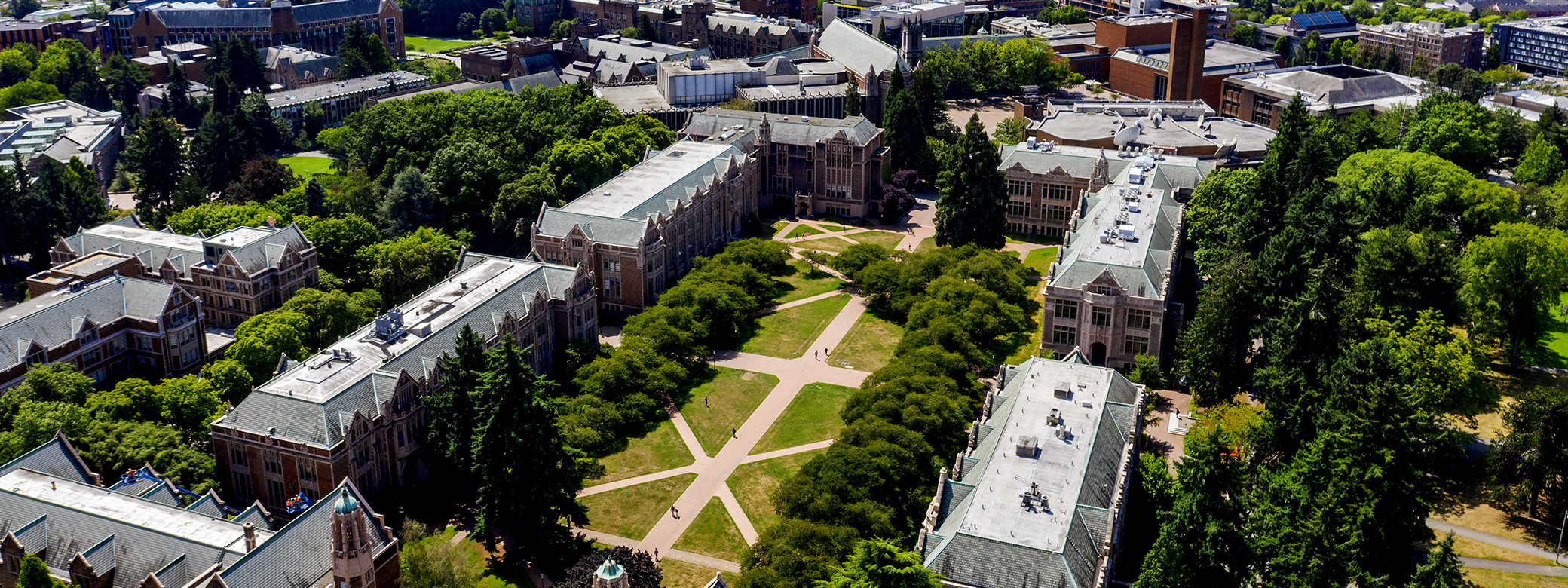With the end of the academic year comes recognition of the exceptional work and extraordinary service of Arts & Sciences faculty, staff, and students. We celebrate their many, MANY accomplishments!
Husky 100 Students from Arts & Sciences
Adolph Ranked #1 Among Political Scientists for Impact
Hertzog Elected to National Academy of Sciences
Li Named AAAS Fellow
President’s Medalists Represent Arts & Sciences
Prihandita Wins Nebula Award
Greenwald Receives Frontiers of Knowledge Award
Arts & Sciences Dean's Medalists, Graduate Medalists
Jafari Named Truman Scholar
UW 2025 Awards of Excellence
More Awards & Honors
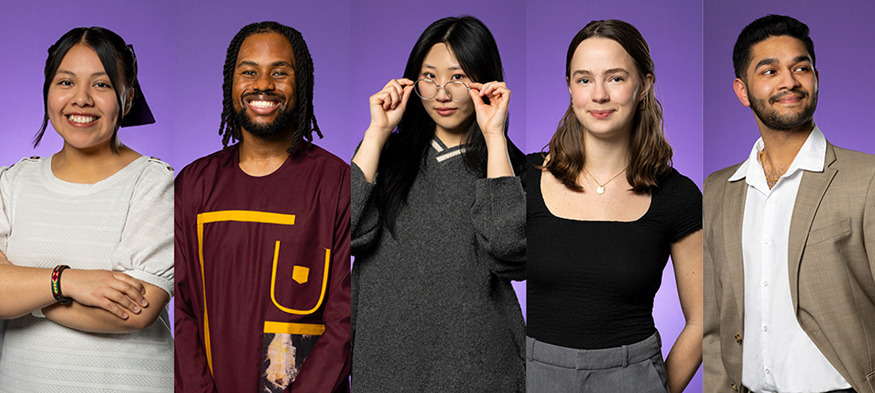
Husky 100 Students from Arts & Sciences
Each spring, the UW announces its Husky 100, recognizing 100 undergraduate and graduate students who are making the most of their time at the UW, actively connecting what happens inside and outside the classroom to make a difference on campus and in their communities. Of the 100 students honored for 2025, 32 are from the College of Arts & Sciences. Their interests range from foreign policy to environmental sustainability to youth mental health. To learn more, visit the UW’s Husky 100 webpage, which features photos and brief profiles of all 100 UW honorees for 2025.
Adolph Ranked #1 Among Political Scientists for Impact
In a March 2025 global ranking of research productivity of political scientists, UW professor Christopher Adolph was ranked first globally for recent impact. Adolph is a professor of political science, adjunct professor of statistics, and associate director and core faculty in the Center for Statistics and the Social Sciences.
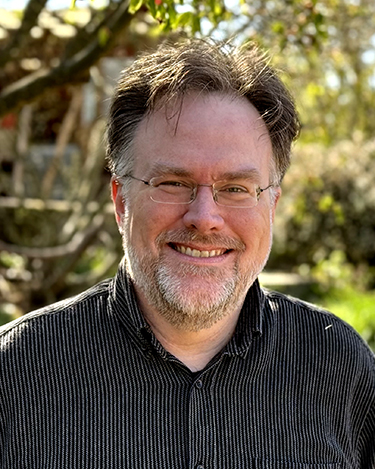
The ranking, published by PS: Political Science and Politics, also ranked Adolph third globally for overall impact and fifth globally for recent citations, based on data from more than 115,000 articles and 12,000 books from 5,568 faculty members and 178 departments across the globe.
Adolph’s high ranking is largely due to his recent research on COVID-19 policies. From the beginning of the COVID pandemic through the summer of 2021, Adolph led a UW research team that provided detailed data on state policies around COVID, especially social distancing and mask mandates. That data proved critically useful for scientists, mass media, political leaders, and even large business interests.
When mandates on distancing and masks ended, the research shifted to analysis. Joining forces with a large group of contributors at the Institute for Health Metrics and Evaluation (IHME), the team looked at social, racial, or economic factors that affected the spread and mortality of COVID, and the impact of mandates. They also explored the role of politics in the consequences of the pandemic for health, economics, and education.
In the same PS: Political Science and Politics assessment of impact, the UW Department of Political Science was ranked second globally for recent impact (1st in North America), 12th globally for overall impact (ninth in North America), and 13th globally for recent citations (10th in North America).
Hertzog Elected to National Academy of Sciences
David Hertzog, the Arthur B. McDonald Distinguished Professor of Physics and director of the UW Center for Experimental Nuclear Physics and Astrophysics, has been elected to the National Academy of Sciences, in recognition of “distinguished and continuing achievements in original research.”
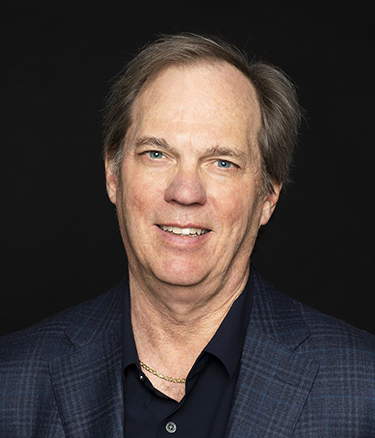
Hertzog leads the UW Precision Muon Physics Group, a research group that has designed and constructed detectors for high-precision experiments with muons — similar to electrons, but about 200 times more massive — conducted at the Fermi National Accelerator Laboratory near Chicago. The UW team also has led efforts to analyze the massive amounts of data produced in that experiment, known as the Muon g-2 experiment.
The overarching goal is to test the Standard Model — a theory to describe how the universe works at its most fundamental level. Studying the behavior of muons may help determine whether muons are interacting solely with known particles and forces, or if unknown particles or forces exist.
Hertzog has served on numerous scientific advisory committees and panels and is coauthor of more than 200 papers and technical reports. He has mentored or co-mentored more than 20 PhD students and 15 postdoctoral researchers.
Also elected to NAS this year from the UW is Adrienne Fairhall, professor of physiology and biophysics and adjunct professor of applied mathematics.
Li Named AAAS Fellow
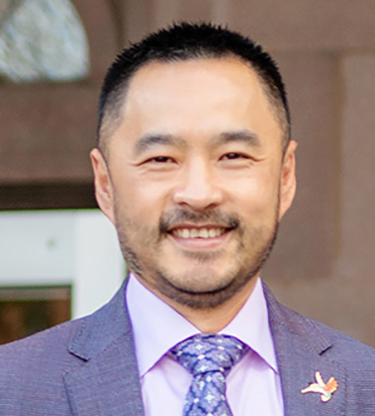
Xiaosong Li, the Larry R. Dalton Endowed Chair in Chemistry and associate dean for research in the College of Arts & Sciences, is among five UW researchers named AAAS Fellows for 2025 by the American Association for the Advancement of Science, recognized for their “scientifically and socially distinguished achievements” in science and engineering. A tradition dating back to 1874, election as an AAAS Fellow is a lifetime honor.
AAAS recognized Li for his contributions to the development and application of time-dependent quantum theory and relativistic electronic structure theory, and for advancing educational pathways and diversity in STEM. He conducts research at the intersection of physics, chemistry, materials science, mathematics, and scientific computing, and he has developed widely used computational software.
A UW faculty member since 2005, Li’s honors include a Sloan Research Fellowship, the NSF CAREER Award, the American Chemical Society Jack Simons Award in Theoretical Physical Chemistry, and the UW Distinguished Teaching Award. He is a fellow of the American Physical Society and the Royal Society of Chemistry, a Lab Fellow at Pacific Northwest National Laboratory, and an elected member of the Washington State Academy of Sciences.
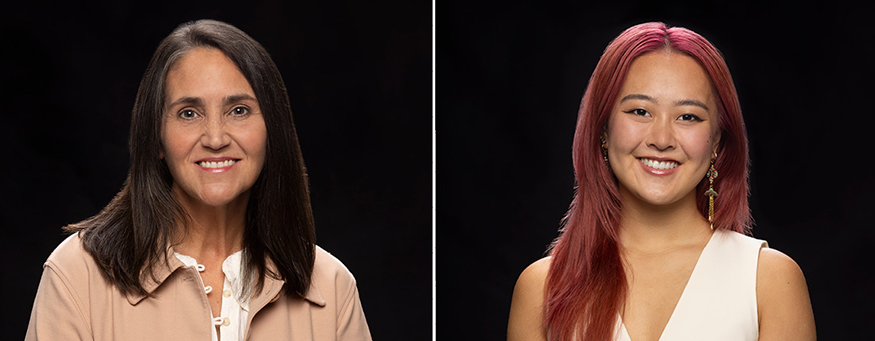
President's Medalists Represent Arts & Sciences
The UW President’s Medal is presented annually to two graduating seniors who have achieved the most distinguished academic records in their class. This year, both honorees earned a degree from the College of Arts & Sciences. One medal is given to a student who has completed at least three-fourths of their requirements at the University; the other is awarded to a student who entered the University with at least 60 transfer credits from a Washington community college. All information below is excerpted from UW President Ana Mari Cauce's presentation of the medals in June.
Kerry L. Petit
BA, Anthropology
Minor IN Urban Ecological Design
Kerry Petit returned to higher education later in her career, first at Shoreline Community College and then at the UW. She embraces new experiences inside and outside the classroom, and as an anthropology major, she is interested in how culture and design can shape more equitable futures. Kerry, a member of the Chinook Indian Nation family, plans to apply her learning to working with underserved communities supporting cultural revitalization and ethical museum practices.
Gloria Shen
BS, Neuroscience, MINOR IN Dance
As a Seattle native, Gloria Shen was drawn to the UW from an early age, but as a student, she discovered an even deeper connection and community through the neuroscience program. Shen has pursued an ambitious academic program at the intersection of dance, medicine, and neuroscience, receiving numerous awards and scholarships in recognition of her academic excellence. After graduation, she plans to pursue a medical degree and hopes to one day become a pediatric neurosurgeon.
Prihandita Wins Nebula Award
Just days before graduating this June with a PhD in language and rhetoric from the UW Department of English, Anselma Prihandita won a prestigious Nebula Award from the Science Fiction and Fantasy Writers Association, for a story inspired by her dissertation research. Past Nebula winners in the same “novelette” category include such literary heavyweights as Ursala Le Guin, George R. R. Martin, Octavia Butler, and Ted Chiang.
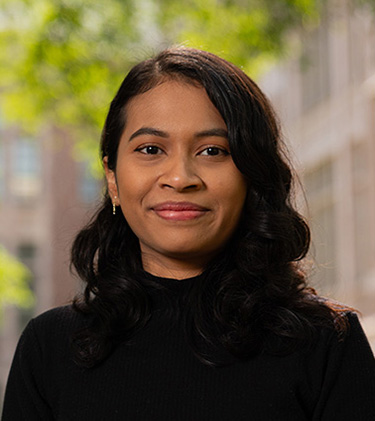
Prihandita’s story, “Negative Scholarship on the Fifth State of Being,” published in Clarkesworld Science Fiction & Fantasy Magazine, centers around a human doctor who must treat a very rare alien species using only artificial intelligence assistance and translation machines. The doctor soon realizes that translating words and using officially sanctioned databases aren’t sufficient for understanding this individual from a totally unfamiliar culture. The doctor must find a different way to help.
“That story is actually a translation of one of my dissertation chapters into story form,” says Prihandita. “It was a way to work through scholarly questions and theoretical concepts from my research. The alien is a metaphor to show how to engage emotionally and experientially with people who are in a marginalized position. It’s not something I’d been able to demonstrate in my dissertation, which is a more logical form of writing. But I felt that the experience offered by the story was an important part of my overall argument, so I decided to include the story in my dissertation.”
In her acceptance speech, Prihandita — the first Indonesian writer to receive a Nebula Award — included thanks to Nazry Bahrawi, assistant professor of Asian languages and literature, “who showed me that speculative fiction could still exist within the scholarly,” and Suhanthie Motha, associate professor of English, “whose excitement and care made the University a better place.” She also thanked fellow UW graduate students (some are now alums) Amalie Goul Dueholm, Kelly Van Acker, and Reuven Pinnata.
Greenwald Receives Frontiers of Knowledge Award
Tony Greenwald, UW professor emeritus of psychology — along with Harvard colleague Mahzarin Banaji — has been honored with a Frontiers of Knowledge Award, presented by the BBVA Foundation to recognize and reward contributions of singular impact in science, technology, the humanities, and music. This year's 400,000 euro award for Social Sciences is divided among five recipients, with each honoree receiving 80,000 euros.
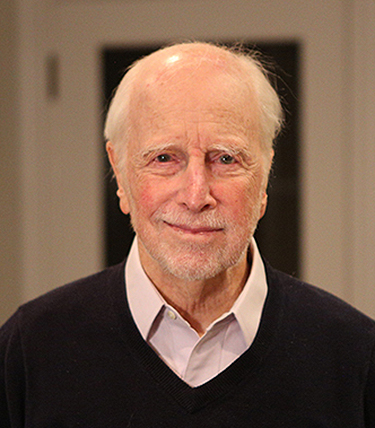
Greenwald and Banaji are being recognized for developing the Implicit Association Test, an online test that explores our implicit biases — attitudes and stereotypes that affect perception and judgment without our being aware of it. The test captures the test taker’s implicit biases toward — depending on the test version — race, gender, age, and dozens of other traits and preferences. Since its debut in 1998, the test has been taken online more than 25 million times. Its concepts have been the subject of classroom and workplace debates, policies, and programs.
Announcing the Frontiers of Knowledge Award, the BBVA Foundation noted that the Implicit Association Test has served as a starting point for numerous applications in clinical psychology, education, marketing, and diversity management, and has been used for data collection in over 2,000 papers.
Greenwald joined the UW Department of Psychology as a professor in 1986. He transitioned to professor emeritus in 2020, and has since been helping people who are suing on the basis of discrimination to win their cases by providing expert testimony based on the science of implicit bias. He plans to contribute the Frontiers of Knowledge monetary award to “well-conceived anti-discrimination efforts of social justice non-profits.”
Arts & Sciences Dean's Medalists, Graduate Medalists
In June, the College of Arts & Sciences recognized exceptional students from each of its four divisions — Arts, Humanities, Natural Sciences, and Social Sciences — based on academic performance and nominations from faculty. Four graduating seniors received the Dean’s Medal, and four students completing advanced degrees received the Graduate Medal.
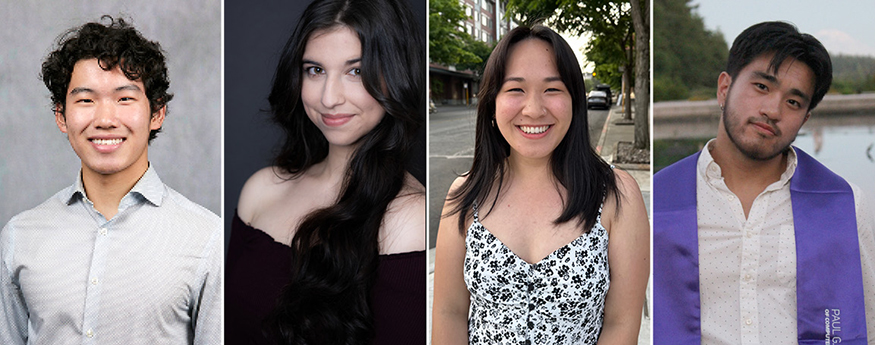
2025 Arts & Sciences Dean's Medalists
During their time at the UW, the 2025 dean’s medalists — David Young, Priya Hendry, Emma Peterson, and Andre Ye (above, from left) — explored theater and social justice, volunteered at free health clinics, launched a student-run literary festival, researched AI’s potential for philosophers, and much more. Learn more about our 2025 Dean's Medalists.
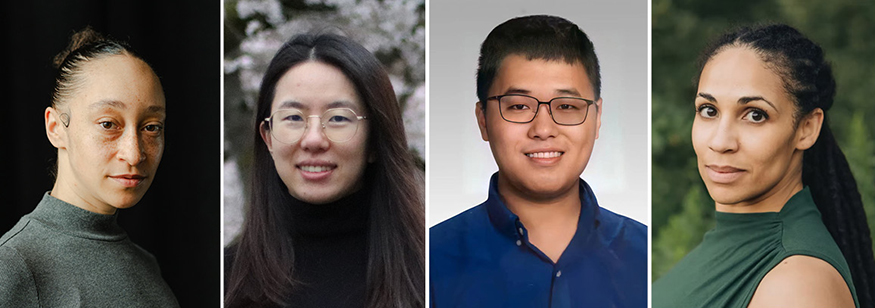
Arts & Science Graduate Medalists
The 2025 graduate medalists — Annie Franklin, Jieyu Zhou, Jiaqi Cai, and Cristina Gildee (above, from left) — have contributed to a landmark discovery in physics, advanced our understanding of how our bones age, expanded the higher education dance curriculum, and improved the teaching of the Chinese language. Learn more about our 2025 Graduate Medalists.
Jafari Named Truman Scholar
Biochemistry major Tristan Jafari has been selected for the prestigious Truman Scholarship, a highly competitive national award that recognizes aspiring leaders driven to make change at the systems level. Truman scholars receive up to $30,000 for graduate school, mentoring, and additional benefits to help prepare them for careers where they can make an impact.
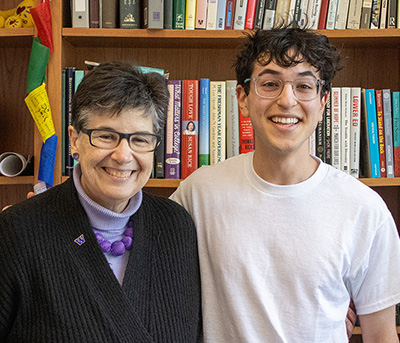
Jafari is a founder and chief of the University of Washington Emergency Medical Services (UWEMS), the first campus-based EMS service in the state of Washington. UWEMS is now a team of nearly 30 undergraduate EMTs who respond to 9-1-1 medical calls on the UW campus in coordination with the Seattle Fire Department. Since its launch, UWEMS has cut emergency response times in half and has provided hundreds of free CPR and overdose response certifications to members of the University community. Jafari was awarded the UW Mary Gates Leadership Scholarship twice in support of his work.
“I’m incredibly excited to pursue programs and a career where I can integrate clinical care and public health leadership,” Jafari says. “I particularly look forward to meeting other Truman scholars and alumni in a diverse set of fields, from whom I’m certain I will gain valuable perspectives.”
Earlier this year, Jafari was also selected for the competitive Gates Cambridge Scholarship. He will pursue a master’s degree in philosophy of population health sciences at the University of Cambridge in England this fall.
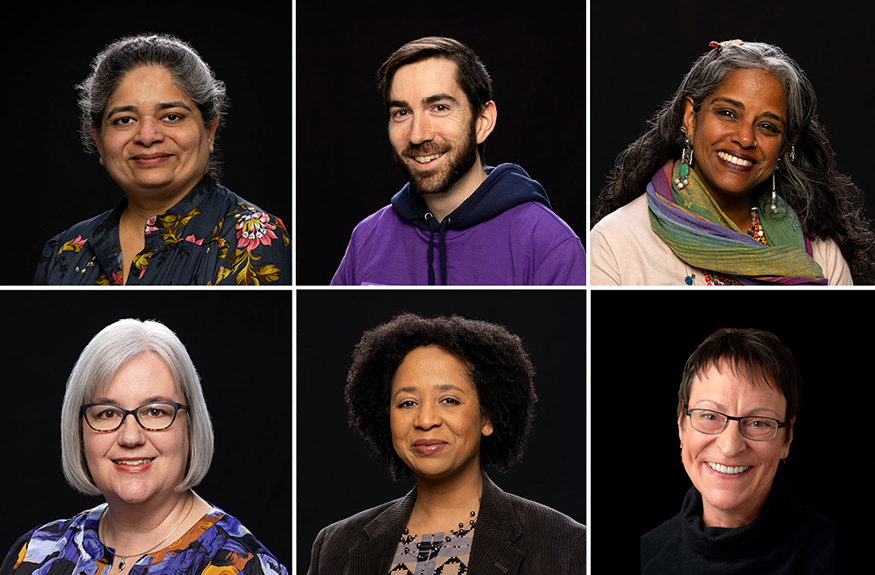
UW 2025 Awards of Excellence
Each year, the University of Washington presents Awards of Excellence to recognize exceptional contributions to the UW and the community. Recipients for 2025 include six faculty and staff from the College of Arts & Sciences, including Munira Khalil, Chemistry; Colin Giola Connors, Scandinavian Studies; Jasmine Jamillah Mahmoud, Drama; Laura W. McGarrity, Linguistics; Anu Taranath, English and Comparative History of Ideas; and Hannah Wiley, Dance. Learn more about these honorees.
More Awards & Honors
Five Arts & Sciences faculty were among nine UW faculty awarded an Outstanding Undergraduate Research Mentor Award from the UW Office of Undergraduate Research for "excellence in guiding undergraduates in their research journeys." Arts & Sciences honorees include Jessica L. Beyer, assistant teaching professor in the Jackson School of International Studies; Scott Magelssen, professor of theatre history and performance studies in the School of Drama; Sharlene Santana, professor of biology and curator at the Burke Museum of Natural History and Culture; Paula Saravia, assistant teaching professor of anthropology, and Rich Watts, associate professor of French. The honorees were selected from 480 nominations and were recognized at the UW Undergraduate Research Symposium.
Sara Curran, professor of sociology and of international studies, professor of public policy and governance, and associate vice provost for research, was named a fellow in the UW Academic Leadership Program, the Big Ten Alliance’s premier leadership program. Curran will be one of five UW faculty representing the University in the leadership program.
Aria Fani, assistant professor and Elahé Omidyar Mir-Djalali Professor in Persian and Iranian Studies in the Department of Middle Eastern Languages and Cultures, received the Rene Wellek Prize from the American Comparative Literature Association for his book, “Reading across Borders: Afghans, Iranians, and Literary Nationalism.” The prize is awarded for the best book published in the field of comparative literature and is the most prestigious award in that field.
Wesley Hull, graduate student (now PhD) from the Department of Biology, was awarded the UW Graduate School Medal, which recognizes a doctoral candidate whose academic expertise and social awareness are integrated in a way that demonstrates an exemplary commitment to the University and its larger community. Hull's doctoral research involved worked with shellfish farmers, coastal managers, and regulatory agencies on Washington’s Pacific coast to investigate the impacts of eelgrass on burrowing shrimp and burrowing shrimp on oysters vital to the region’s communities.
Samson Jenekhe, professor of chemistry and Frank Jungers Endowed Chair in Engineering, received the 2025 de Gennes Prize from the Royal Society of Chemistry for outstanding contributions to synthetic chemistry, physics, and applications of conjugated polymers. Jenekhe’s research has been at the interfaces of chemistry and the physics of organic/polymer semiconductors, and their applications in electronics and energy technologies.
Sarah L. Keller, the Duane and Barbara LaViolette Endowed Professor of Chemistry, received the Science Advancement and Leadership Award from the Seattle Chapter of Association for Women in Science. The award recognizes Keller’s dedication and leadership in her field and the role model she has become for those at all stages of their careers.
Victoria Lawson, professor emerita of geography, received the Lifetime Achievement Honor from the American Association of Geographers for outstanding contributions to geographical research, teaching and mentoring, and disciplinary service. Lawson has published pathbreaking research at the intersection of feminist economic and social geography and has played a leading role in helping to advance feminist care ethics approaches in geographical research.
José Antonio Lucero, chair and professor of Comparative History of Ideas (CHID) and professor of international studies, and co-author Michael Steven Wilson, received the Native American and Indigenous Studies Association's Best Subsequent Book Prize for their book, "What Side Are You On? A Tohono O’odham Life Across Borders." The book is a richly layered and textured life history of Tohono O’odham veteran Wilson, a former US Green Beret who went on to assist refugees across the US/Mexico/O'odham borderlands. It interweaves powerful personal testimonio by Wilson and impassioned political and historical analyses by Lucero.
Anne B. McCoy, the Natt-Lingafelter Professor of Chemistry, has been elected as a member of the American Academy of Arts and Sciences. Election to the Academy is both a recognition of profound achievement and an invitation to help shape the intellectual and civic future of the nation. McCoy also received the Herschbach Medal (theory category) for contributions to the field of molecular collision dynamics.
Aseem Prakash, professor of political science and Walker Family Professor for the Arts and Sciences, received the 2025 John Gaus Award from the Political Science Association, which honors a lifetime of exemplary scholarship in the joint tradition of political science and public administration.
Adrian Raftery, the Blumstein-Jordan Professor Emeritus of Statistics and Sociology, received an Honorary Life Membership to the Irish Statistical Association in recognition of outstanding contributions to the field of statistics. Raftery, internationally renowned for his work in Bayesian statistics, model selection, and social science applications, has shaped statistical methodology and influenced policy and practice across disciplines.
Nicholas M. Riley, assistant professor of chemistry, received multiple awards this year. He received an Early Career Research Award from the Biochemical Society, which recognizes excellence in the recipient’s field. From the American Chemical Society, he received the Arthur F. Findeis Award for Achievements by a Young Analytical Scientist, which recognizes and encourages outstanding contributions to the fields of analytical chemistry. Riley was also named a Searle Scholar by the Searle Scholars Program, which supports the independent research of exceptional young faculty in the biomedical sciences and chemistry. And he was among the dozen early-career scientists named to Chemical & Engineering News' Talented 12 list, which highlights twelve early-career scientists doing research that will make a real-world impact.
Adam Summers, professor of biology, was awarded the 2025-2026 Rome Prize in Environmental Arts and Humanities from the American Academy in Rome. The Rome Prize is among the world’s most prestigious fellowship programs and provides the rare opportunity for scholars and artists across a range of subfields to collaborate. The Rome Prize dedicated to the environmental arts and humanities, introduced this year, is designed for collaborative efforts between artists and scholars working on projects that help expand our understanding of how human beings relate to, experience, and process their encounters with the natural world.
Billie Swalla, professor emerita of biology, was recently honored with the Society for Developmental Biology's Lifetime Achievement Award. The award is presented annually to a senior developmental biologist in recognition of outstanding and sustained contributions in the field, exceptional mentoring, and service to the scientific community.
More Stories
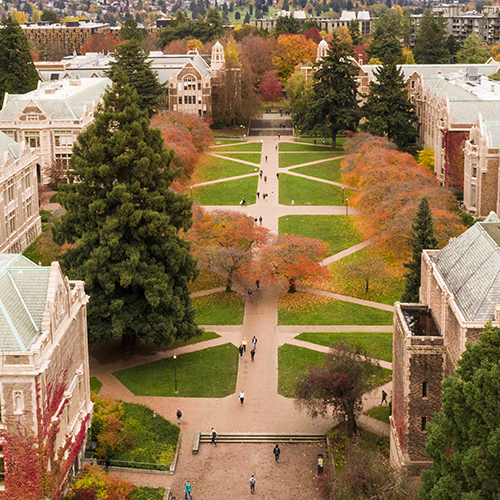
Awards for Research, Social Justice Efforts & More
Recent awards celebrate Arts & Sciences faculty, staff, and alumni for their research, social justice work, lifetime achievements, and more.
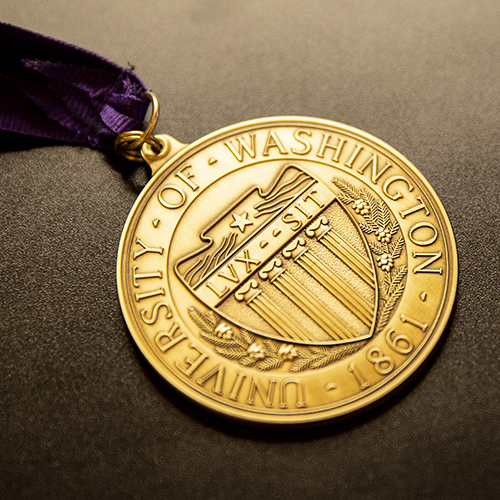
2025 UW Awards of Excellence
Arts & Science faculty and staff were among the recipients of 2025 UW Awards of Excellence for their teaching, leadership, and innovation.
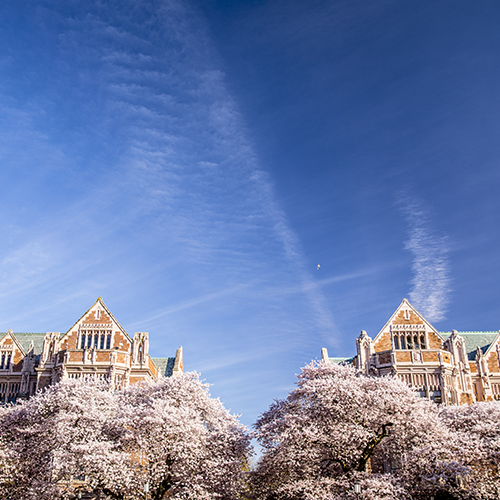
Meet Our 2025 Graduate Medalists
Meet the four graduating students selected by the College of Arts & Sciences as 2025 Graduate Medalists for their accomplishments.
